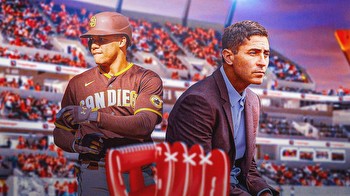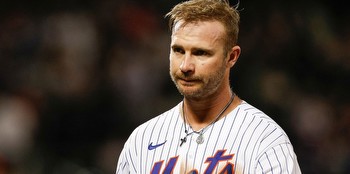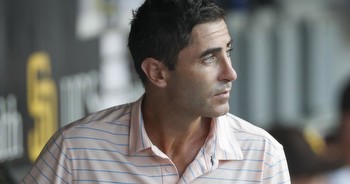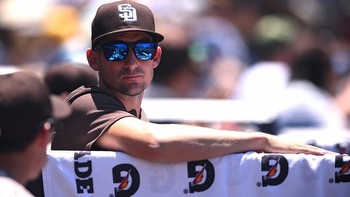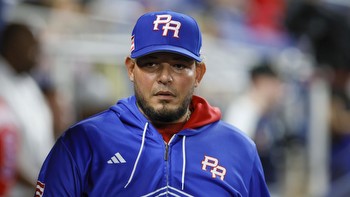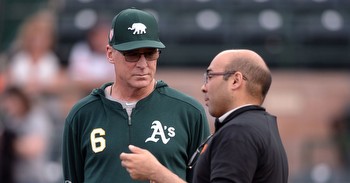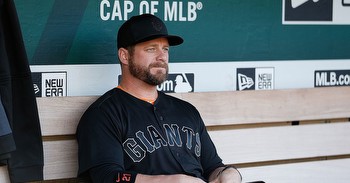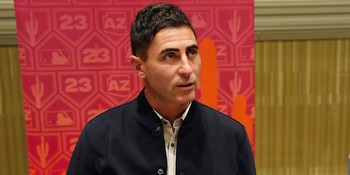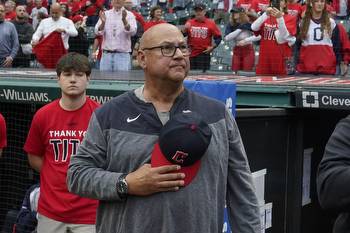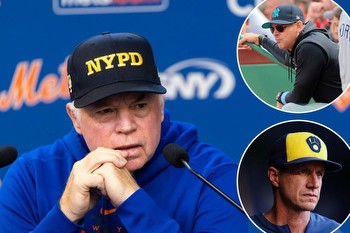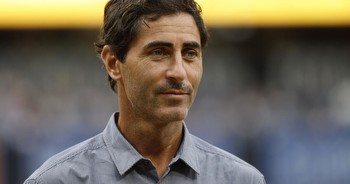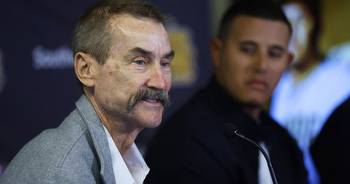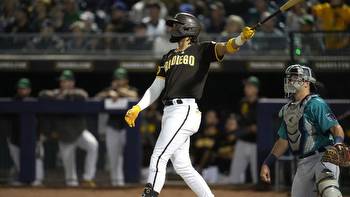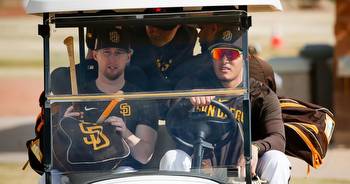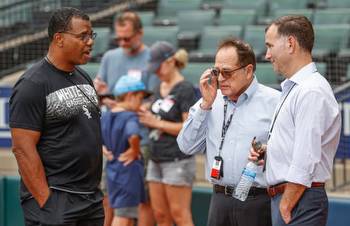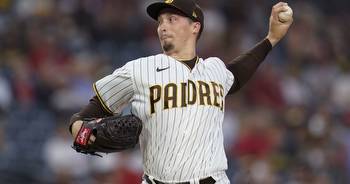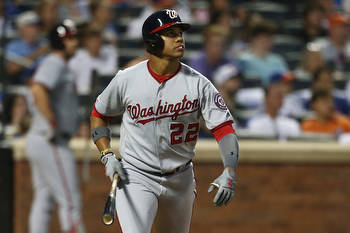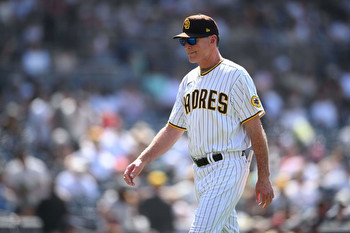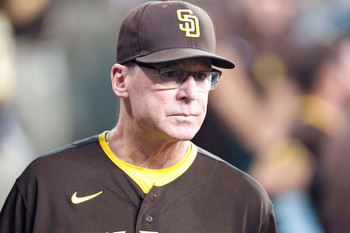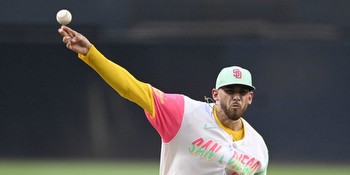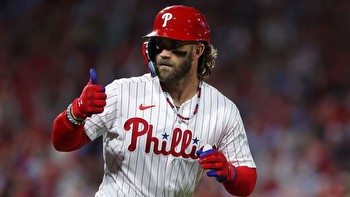Padres mailbag: A.J. Preller’s credibility, analytics usage, Bob Melvin’s responsibility
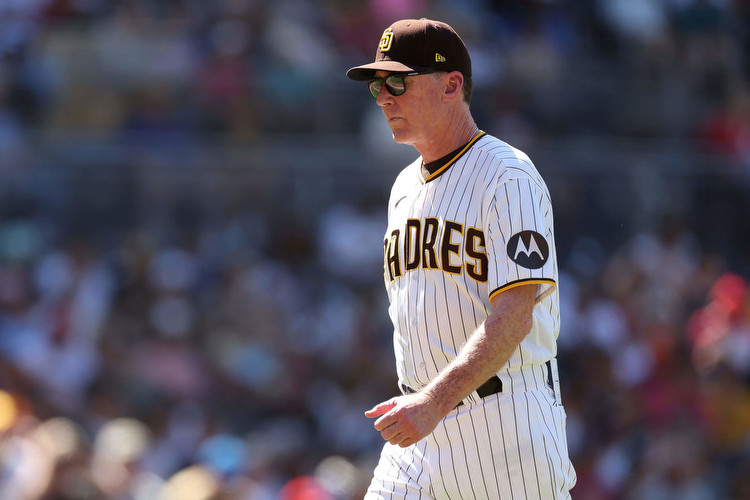
Bob Melvin is back home in San Francisco. The San Diego Padres are back in a familiar spot, searching for a new manager. Let’s get right to your questions (which have been edited for brevity and clarity).
A.J. Preller said Melvin would be the manager in 2024, and that was clearly a lie. How much of what he said was actually true? Has he even talked to Scott Boras at all about a Juan Soto extension, or was that just to save face? — B L.
Preller does have a credibility issue, especially with how this month has unfolded. A recap: 1) The Padres’ season ends. 2) A few days later, Preller announces on a Zoom call that he and Melvin will return, adds that they are both excited and dismisses the credibility of reports of a fractured relationship. Melvin is notably absent from the same Zoom call, though in brief comments to reporters the next day, he says he also is excited about the challenge of managing another Padres team. 3) The Giants never take Preller at his public word. Early last week, San Francisco requests permission to interview Melvin. 4) Last Saturday, the Padres grant their permission. 5) On Wednesday, Melvin is introduced as the Giants’ new manager.
So, not a good look for Preller, although I wouldn’t characterize it as a black-and-white situation. When Preller announced Melvin would return, he likely did so in an attempt to provide some semblance of stability coming off a tumultuous season. The Giants obviously didn’t see it as an effective attempt. He also did so knowing there was a decent chance Melvin would indeed return; there was no guarantee that another team would poach Melvin, and firing Melvin would leave the Padres on the hook for $4 million. Similarly, Melvin likely said he was looking forward to returning knowing there was no guarantee another team would poach him.
In the end, it seems both sides ultimately got what they wanted. Preller got to move on from a manager he no longer wanted, while shedding $4 million. Melvin got to move on from a general manager he no longer wanted to work for, while scoring a dream job and a three-year contract. Yet the Padres — Preller, in particular — handled this clumsily. There was no need for over-the-top pronouncements about Preller’s “friendship” with Melvin. Virtually everyone in baseball knew better.
And many executives in baseball tend to operate in gray areas. Preller, who has been suspended for bending league rules, is a prominent example. Any public comments about Soto’s status in San Diego should be taken with a dash of salt. Speaking of which …
Would you agree the Padres take a patient approach toward a Soto decision, or is this something they would resolve early if they were going to trade him? — Jason D.
I agree that they won’t rush a decision. Before the Padres acquired Soto, he was one of Preller’s white whales, maybe surpassed by only Shohei Ohtani. No one thinks Preller wants to trade Soto. A lot of people in the sport, including some Padres officials, believe Preller will end up being compelled to do it, whether before next season or by the trade deadline. That’s because the Padres plan to lower payroll by at least $50 million. Doing so without trading Soto and his projected $33 million salary … yeah, good luck.
Plans can change, of course, but all signs — and Boras’ track record — continue to point to Soto entering free agency a year from now. For some of the reasons just mentioned, an extension remains unlikely. And a trade of a star as big as Soto could take considerable time. But as early as this summer, Padres officials did not dismiss the idea of listening to trade inquiries involving the outfielder. When the team treks to South Korea in March, there seems to be a decent chance Soto won’t be on the flight.
Can we talk about BoMel’s shortcomings as a manager? The record and resume are great. But his situation in Oakland was a lot different. There was a considerable lack of superstars there during his time. And the young players who did come up through the system were products of the Billy Beane system and had a tremendous amount of buy-in when it came to the organizational philosophy regarding analytics, etc. The Padres’ situation isn’t comparable, and is evidenced by his inability to manage the egos in the clubhouse and get this team pulling on the same end of the rope. Are the Padres guaranteed-money superstars a difficult group to manage? Don’t the Padres need a manager of egos more than a manager of the game? And what does this say about who will get the job next? — Justin R.
Melvin, not just Preller, shoulders a portion of the blame for a failed season. Melvin acknowledged that fact in late September when he called it “probably the hardest (season) I’ve had because of the expectations that we had as a team.” Was he ill-equipped for those expectations? I’m not so sure.
Just a year ago, the three-time manager of the year led Manny Machado, Soto and the rest of a team that had been roiled by the drama of Fernando Tatis Jr.’s suspension into the Padres’ first National League Championship Series in 24 years. And in Oakland, Melvin successfully managed such talents as Matt Chapman, Sean Murphy, Matt Olson and Marcus Semien. “They had a ton of superstars,” one of Melvin’s now-former Padres players said last month. “They were just guys that nobody had dubbed as superstars yet.”
It’s true that Chapman, Murphy and Olson were drafted and developed by the A’s. It’s also true that those A’s teams did not have the payroll and, thus, neither had the expectations of the 2023 Padres. Regarding differences in philosophies and preferred practices, some people inside San Diego’s organization believe Melvin did not make enough of an effort to reach certain compromises.
But there is this, too: Numerous people have said that Preller’s two previous managerial hires — Andy Green and Jayce Tingler — ended up at odds with the GM on an array of issues. Melvin arrived with far more clout than either predecessor, as well as an extensive resume that was free of acute conflict with three other front offices. It wasn’t universal support — it never is, for any manager — but even as the Padres traversed a nightmarish summer, I never heard any player suggest that Melvin had lost the clubhouse.
Ultimately, the players were the ones most responsible for the disappointment of 2023, just as they were the ones most responsible for the abrupt nosedive in 2021 and the embarrassing second-half effort in 2019. Does Preller, nine years in, continue to foster a difficult work environment? Have he and owner Peter Seidler chosen the right superstars to lead the franchise for years to come? Despite certain uncontrollable factors, was it a down season by a manager as respected as Melvin?
All of these are valid questions. And in terms of a managerial solution, there are no easy answers. There aren’t many Craig Counsells in the game, and no one believes Counsell — who is close with Melvin — is coming through the door.
Are the Padres doing anything to address their deficiencies in analytics? It seems we have been hearing for years that the Padres are behind in this area, including commentary that was attributed to BoMel on a podcast last season. Is A.J. just opposed to using them? — Karl S.
Preller is not opposed. “Analytics are a huge part of what we do,” he said Wednesday.
Preller, in recent years, has added to his research and development department by hiring from, among other places, FanGraphs, Tampa Bay and Cleveland. The Padres will soon open a pitching lab at Point Loma Nazarene University. Current and former staffers have said that the amount and quality of in-game information is more than sufficient and not nearly as archaic as some outsiders perceive. According to some team members, Melvin at times took issue with the type of information he was receiving or how it was being presented.
Still, those who know and work with Preller say he continues to run a more scout-driven organization than most. Many of Preller’s most trusted advisors are executives with relatively traditional scouting backgrounds. And the Padres, with a top-heavy payroll and more future financial commitments than any other team, continue to lean heavily on their scouts when debating and deciding which players to acquire or shed. Outside of games, the overall influence of the analytics department likely remains limited when compared with many organizations.
Are the Padres moving closer to the middle? It seems that way. Because they intend to lower their payroll, it also might be necessary.
Is Ruben Niebla a potential managerial candidate, or is his cap in interest/ability at pitching coach? He’s the one I’d hate to lose the most and he seems well-liked among players, coaches and the front office. — Chris B.
Niebla is indeed well-liked by people throughout the organization, including Preller, who hired the pitching coach away from Cleveland in 2021 before Melvin even arrived in San Diego. Niebla has indicated in the past he is interested in managing one day, so the Padres may very well give him an interview — at least to reward a coach that they, too, would hate to lose.
It’s unclear if Niebla will get real consideration to replace Melvin — Ryan Flaherty and Mike Shildt continue to be seen as the in-house favorites — and the Padres might be reluctant to replace Niebla’s contributions as a pitching coach. For now, he appears likely to continue in that capacity. Niebla is under contract for 2024.
How involved is Seidler in these questionable contract decisions? Is he sending some roster makeup decisions down to Preller, or did they all originate in the head of A.J.? — Dan M.
While I’m not the biggest Preller fan, one thing that has never been made clear, was Melvin Preller’s hire or Seidler’s hire? It may be that Preller was overruled on that hire due to his history of hiring managers. — Ken W.
Seidler was heavily involved, in particular, on Machado’s extension and the signing of Xander Bogaerts. There are plenty of people in the organization who believe Machado would be on the verge of free agency if Seidler hadn’t moved decisively to lock up the infielder in spring training.
It would be a stretch, however, to say that Preller has a legitimate gripe. He has received significantly more resources and latitude than most GMs, and Preller recommended to Seidler the original acquisition of Machado and the signing of Bogaerts.
Similarly, the decision to hire Melvin will go down as another move Preller apparently knows he must own. Preller was asked Wednesday whether he or Seidler made the final call two years ago.
“It was my call,” Preller said. “We’d been throwing a lot of different ideas out there. … I think it was more of just a random idea that I presented to the group and to Peter, and ultimately Peter was supportive of it.”
Is there any truth to the rumor that before hiring Melvin, the Padres offered the job to Bruce Bochy (possibly as many as four times) and he turned it down each time? — Kenneth N.
No truth here. At the time, some members of the organization thought the Padres should at least discuss Bochy as a potential candidate, but Preller and Seidler never approached Bochy. So, Bochy never interviewed for the job. People close to Bochy believe the future Hall of Famer, had he returned to San Diego, might have clashed with Preller to an even greater extent than Melvin eventually did.
As Sportico reported in 2021, former Padres owner Ron Fowler did call Bochy in late 2019 to ask if he would be interested in replacing Green. The conversation was brief, and never led to anything. Bochy, who had just completed his storied run in San Francisco, told Fowler he wanted to take some time off from managing, which he did before he resumed managing this year for Texas.
(Top photo of Bob Melvin: Sean M. Haffey / Getty Images)

